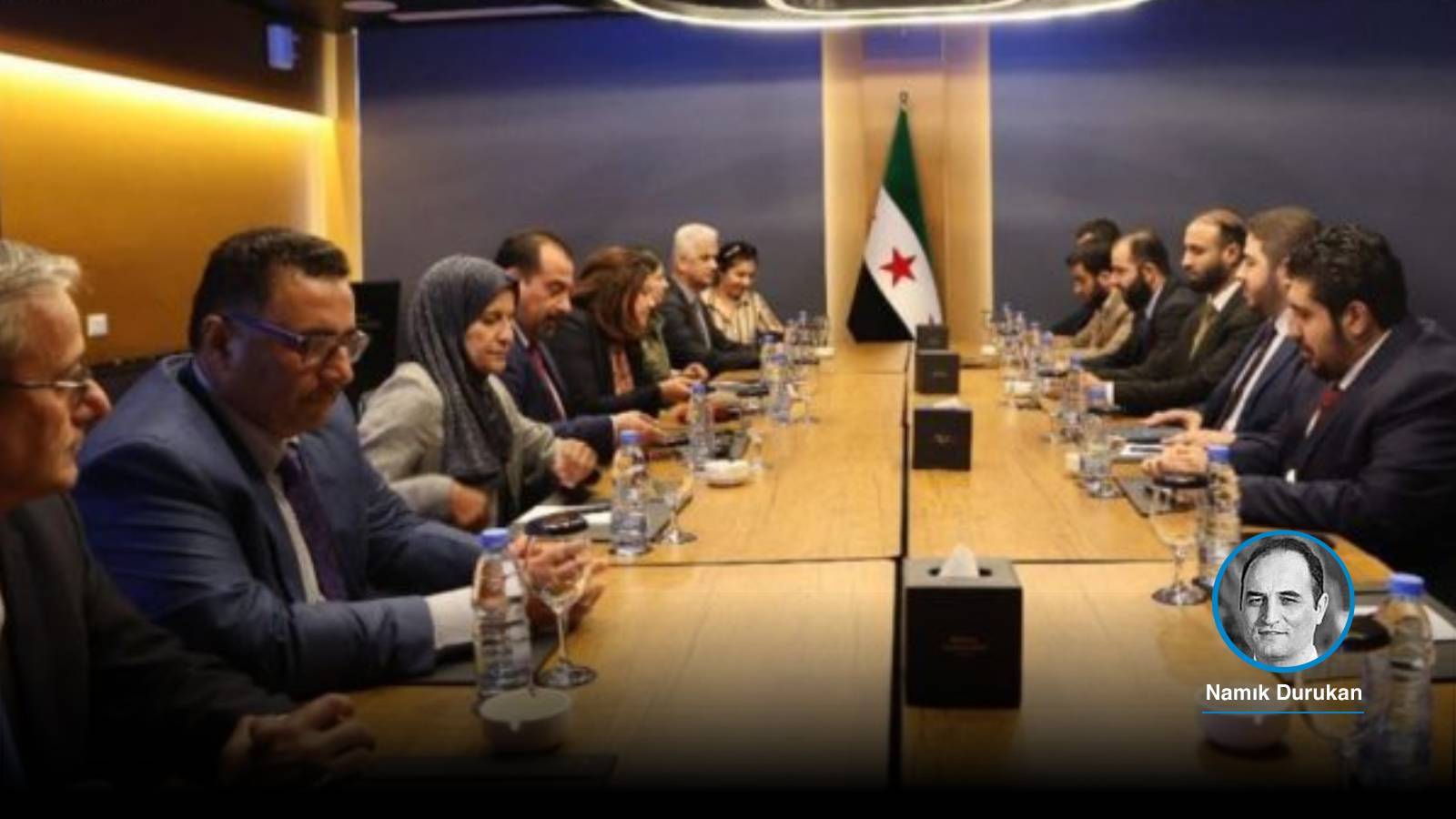Critical negotiations between Syria's transitional government and the Syrian Democratic Forces (SDF) collapsed in Damascus yesterday, prompting military forces to mobilize along contact lines and escalating tensions throughout northeastern Syria. The U.S. and French-mediated talks broke down over irreconcilable differences regarding the integration of SDF-controlled territories into the Syrian state.
According to a report from Namık Durukan from the Turkish news outlet T24, a high-level meeting held at Damascus's Tishrin Palace on July 9 brought together key figures from both sides. The SDF delegation, headed by General Commander Mazlum Abdi, included External Relations Co-chair Ilham Ahmed and regional administration representatives. Syrian officials present included Foreign Minister Asad Hassan Shaybani, Interior Minister Anas Hatab, Defense Minister Murhef Abu Kasra, and Intelligence Chief Hussein Salama. U.S. Ambassador to Turkey Thomas Barrack, who serves as Special Representative for Syria, attended alongside French representative Jean-Baptiste Faivre.
Core Disagreements Surface
The negotiations aimed to implement a March 10 agreement between Damascus and the SDF but quickly encountered fundamental obstacles. The SDF delegation pressed for several key demands that Damascus found unacceptable, particularly regarding federal arrangements for northeastern Syria.
Negotiators familiar with the discussions revealed that while both parties addressed border crossing protocols and administrative integration, they reached an impasse on security arrangements and military cooperation. The SDF also urged Damascus to fulfill promises regarding the return of displaced residents to Afrin, Ras al-Ayn, and Tel Abyad.
Washington Aligns with Damascus
U.S. representative Thomas Barrack adopted a position notably aligned with Damascus's stance. In remarks to North Press following the meeting, Barrack stated that "federalism doesn't work in Syria" and criticized the SDF's negotiating pace. His emphasis on "one nation, one army, one government" directly echoed Damascus's core position.
Speaking later to Erbil-based Rudaw, Barrack reinforced this message: "The only way is Damascus." He clarified that recent statements by U.S. Secretary of State Marco Rubio regarding Kurdish rights referred to cultural identity rather than political independence. Barrack warned that while international support for Syria remains available, the window for peaceful integration is narrowing.
Military Tensions Escalate
The diplomatic breakdown has triggered immediate security consequences. Syria's Defense Ministry has placed forces on high alert along all SDF contact lines. In Deir ez-Zor province, tribal militias aligned with Damascus have declared a "general mobilization" against SDF forces, signaling potential military action.
Damascus's position remains uncompromising: complete integration under the principle of "One Syria, one army, one government," with categorical rejection of any federal or autonomous arrangements. This stance, now apparently supported by U.S. mediators, leaves minimal space for preserving the administrative structures the SDF has established over the past decade.
With diplomatic channels exhausted, both sides appear to be preparing for a possible military confrontation. This development threatens to destabilize a region still recovering from years of conflict and could complicate ongoing efforts to rebuild Syria's fractured state institutions.
Photo: T24
